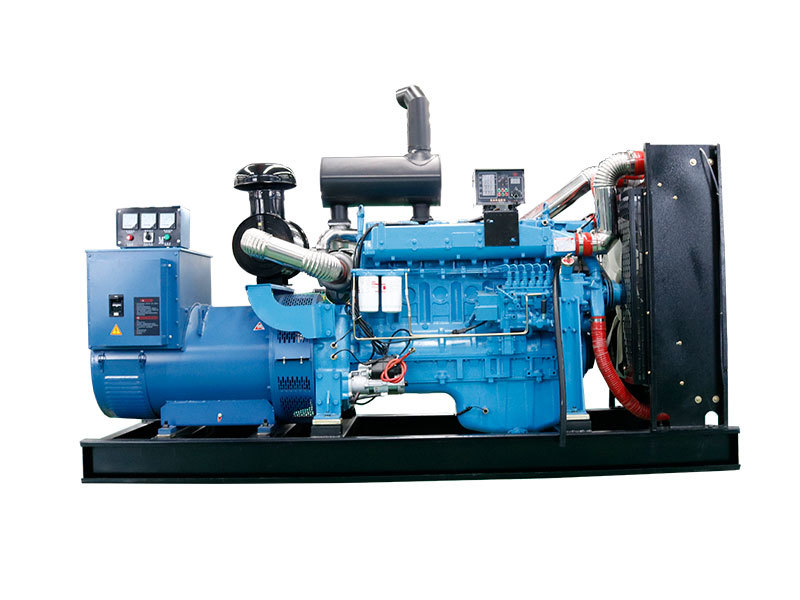
The number you see prominently displayed on a generator is its wattage – a critical figure representing the generator's power output. Understanding what this number means is crucial for selecting the right generator to meet your specific power needs. Whether you're preparing for a power outage, powering tools on a job site, or taking your RV on an off-grid adventure, choosing the correct generator wattage is essential. This article will delve into the importance of generator wattage, helping you decode this vital number and make informed decisions.
Understanding Wattage: The Key to Generator Power
Wattage, measured in watts, indicates the amount of power a generator can produce. A higher wattage means the generator can power more devices simultaneously. Think of it like the horsepower of a car – a higher wattage signifies a more powerful generator capable of handling heavier electrical loads. But what does the number on a generator *really* tell you? It's not just about the biggest number; it's about matching the generator's output to your specific requirements.
Calculating Your Power Needs: A Step-by-Step Guide
Before you start shopping for a generator, you need to determine your power needs. This involves identifying all the appliances and devices you want to power during an outage. Make a list of everything, from essential items like refrigerators and lights to less critical ones like televisions and laptops. Next, find the wattage rating for each device, usually found on a label on the back or bottom. Add up the wattages of all the devices you plan to run simultaneously to get your total power requirement. Don't forget to consider the starting wattage, which can be significantly higher than the running wattage for some appliances, particularly those with motors.
Starting Watts vs. Running Watts: What's the Difference?
Understanding the difference between starting watts and running watts is critical when choosing a generator. Running watts represent the power needed to keep a device operating continuously. Starting watts, also known as surge watts, refer to the extra power required to start an appliance with a motor, such as a refrigerator or air conditioner. Starting wattage can be two to three times higher than the running wattage. Therefore, ensure your chosen generator has enough starting wattage to handle the initial surge of power required by your appliances.
Choosing the Right Generator Size: Finding the Perfect Fit
Now that you understand what the number on a generator means and have calculated your power needs, you can begin to narrow down your generator options. Consider your budget, fuel type (gasoline, propane, or diesel), and portability needs. For emergency home backup, a larger stationary generator might be suitable. For camping or RV use, a smaller portable generator is often preferred. What does the number on a generator imply about its portability? Generally, smaller, lower-wattage generators are more portable.
Types of Generators: Exploring Your Options
Several types of generators cater to different needs. Portable generators are ideal for camping, RVs, and small-scale backup power. Inverter generators offer cleaner power and are quieter and more fuel-efficient. Standby generators are permanently installed and automatically kick in during a power outage. Understanding the different types available will help you select the most suitable generator for your specific application. So, what does the number on a generator mean in the context of different generator types? It still represents wattage, but the type of generator will influence its overall size, features, and cost.
Generator Safety: Essential Precautions
Generator safety is paramount. Never operate a generator indoors or in a poorly ventilated area due to the risk of carbon monoxide poisoning. Keep the generator dry and away from flammable materials. Properly ground the generator to prevent electrical shocks. Consulting your owner's manual for specific safety guidelines is crucial.
Maintaining Your Generator: Ensuring Longevity
Regular maintenance is essential for keeping your generator in optimal condition. Change the oil regularly, check the air filter, and inspect the spark plug. Store the generator properly in a dry and protected area when not in use. Following the manufacturer’s maintenance schedule will help prolong the life of your generator and ensure it's ready when you need it most.
What if my power needs exceed my generator’s capacity?
If your calculated power requirements exceed your generator’s capacity, you have a few options. You can prioritize essential appliances and operate them in shifts, upgrade to a larger generator, or consider using energy-efficient appliances to reduce your overall power consumption.
Making the Right Choice: Your Power is in Your Hands
Choosing the right generator involves understanding what the number on a generator – its wattage – represents, calculating your power needs, and considering various factors like fuel type and portability. By carefully assessing your requirements and exploring the available options, you can select a generator that provides reliable power when you need it most. Now that you know what the number on a generator means, you’re well-equipped to make an informed decision. Consider your needs, research different models, and invest in a generator that provides peace of mind and reliable power.






